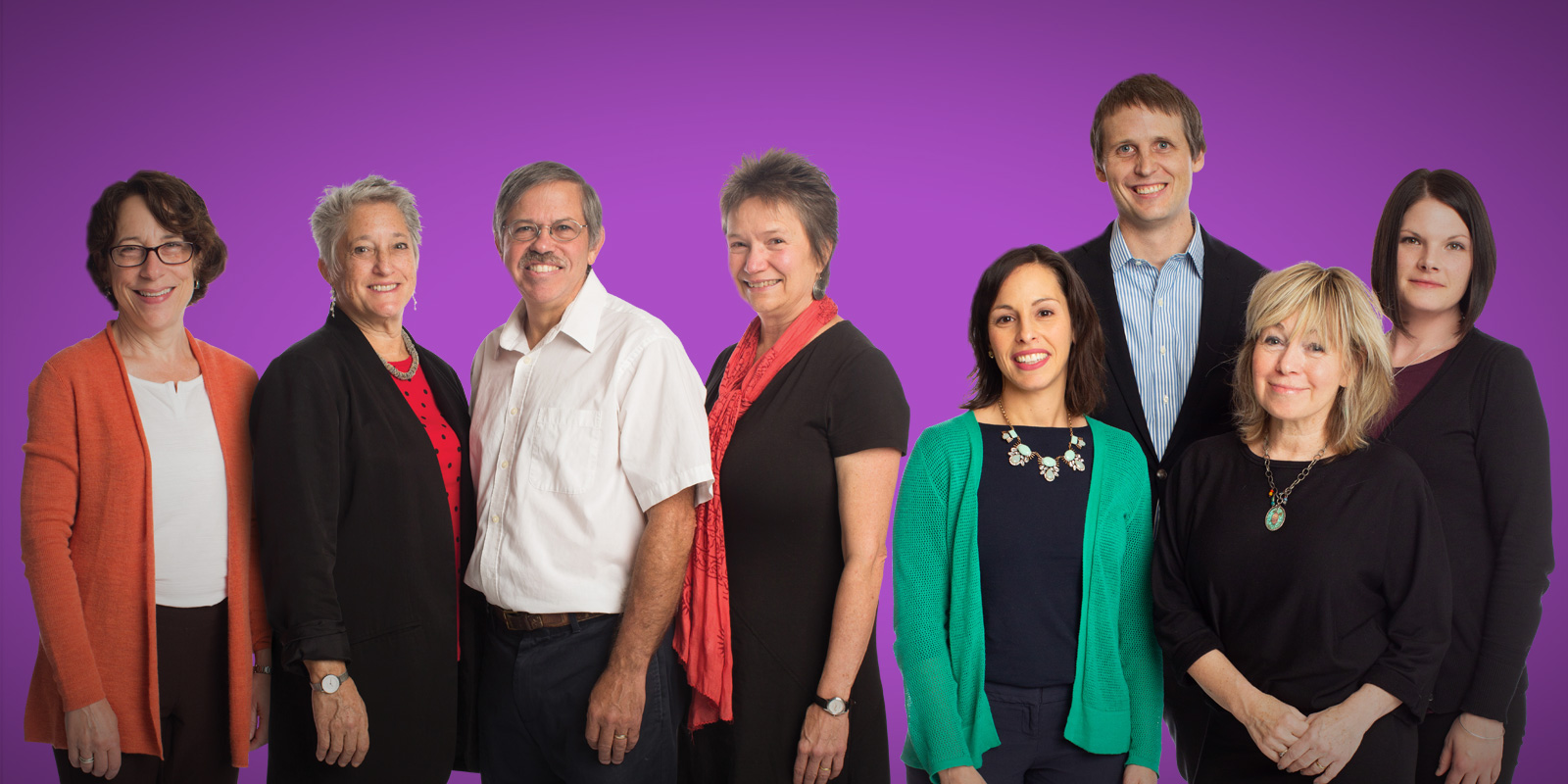
January 31, 2020
We’d like you to meet Clinical Scholars teams whose work is influencing policy change in New York. In addition to making a difference in the lives of those they serve directly in hospitals, clinics, and other settings, health care providers tackle complex health problems in their communities. Their work can also help shape and support public policies that make health and well-being a possibility for all.
In 2016, the New York State Health Department was considering if Medicaid should pay for hormone therapy for transgender youth being treated for gender dysphoria. Department officials were concerned about the safety and efficacy of the treatment, so were reluctant to expand coverage. But they advanced the rule change after talking with health care providers who allayed their concerns. Among those whose counsel played a pivotal role in moving the policy forward was primary care physician Carolyn Wolf-Gould, MD. Carolyn and her Clinical Scholars team members—Diane Georgeson, MD; Christopher Wolf-Gould, MD; and Justine Woolner Wise, LMSW—are committed to supporting equitable health care policy and are building a multidisciplinary, comprehensive model of transgender health care at the Gender Wellness Center in Oneonta, New York.
Also in 2016, the federal Expanding Capacity for Health Outcomes (ECHO) Act was signed into law. The law was designed to help expand New Mexico’s Project ECHO, funded by the Robert Wood Johnson Foundation, as a national model for using telehealth to increase access to health care in rural areas. Even before the federal law was passed, Michael Hasselberg, PhD, RN, PMHNP-BC, a Clinical Scholars Fellow and professor of psychiatry at the University of Rochester, was pioneering the model’s expansion. Michael helped launched the first ECHO-based program in New York State and recently served on the technical expert panel for a February 2019 report to Congress, providing recommendations on opportunities for adoption of the program across the United States. He and his Clinical Scholars team members—Jennifer Richman, MD; Kathryn Lewis, LCSW; and Wendi Cross, PhD—are delivering on the promises of the ECHO Act by using digital community engagement strategies to provide behavioral health care in rural areas where access has been severely limited.
If you are a health care provider interested in influencing policy to help build a Culture of Health, here are four tips for you to consider, drawn from a 2018 Health Affairs article co-authored by directors of RWJF leadership programs.*
- Collaborate with the community to design projects and identify policy opportunities. Community leaders know the needs of their community and can help to keep projects and research relevant on a local level. Seeing this local engagement is influential for policymakers.
- Make your work relevant. Check in with policymakers and leaders who are in a position to apply your findings to policy design. Meet with them while you are in the planning and design phase, answer their questions, and consider their suggestions.
- Share results early and often. If possible, share what you’re learning along the way. Even if you aren’t ready to release fully proven results, think about early insights, questions, and updates that can be useful in real time and can generate interest in your final reports. Be a credible source for policymakers and journalists so they can come to you with questions. Think beyond journal articles; consider social media, blogs, reporters, and conferences as avenues to share your findings.
- Make your research easy to use. In sharing what you’ve learned, make findings easy for policymakers, reporters, and others to quote, share, and use—for example, consider how you might use infographics. Be precise about the strengths and limitations of your findings to provide a sound basis for decision making.
Policymakers are hungry for the innovative insight being generated by health care providers in their community-focused work, but they don’t often know how to find it or even that the work is being done. By helping them connect the dots between their policies and your expertise, you can help build a Culture of Health that extends far beyond your daily practice.
(Photo caption: From left to right: Diane Georgeson, Justine Woolner-Wise, Christopher Wolf-Gould, and Carolyn Wolf-Gould are building a comprehensive model of transgender care. Jennifer Richman, Michael Hasselberg, Wendi Cross, and Kathryn Lewis are increasing access to behavioral care through digital community engagement strategies. Both teams are Clinical Scholars Fellows from New York.)
*When engaging legislators and influencing policy, abide by any lobbying rules placed on the engagement by your organization or by the funder of the work.